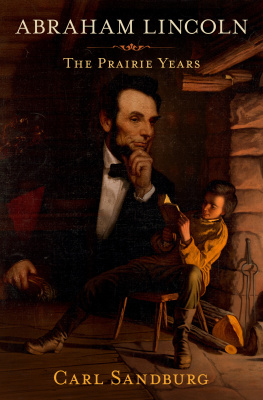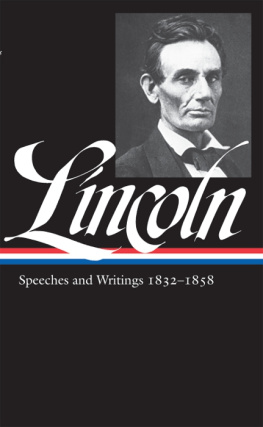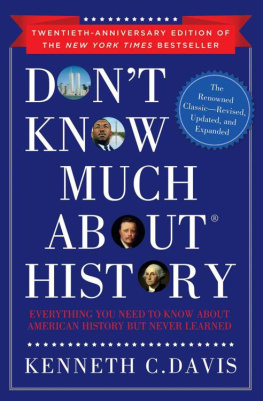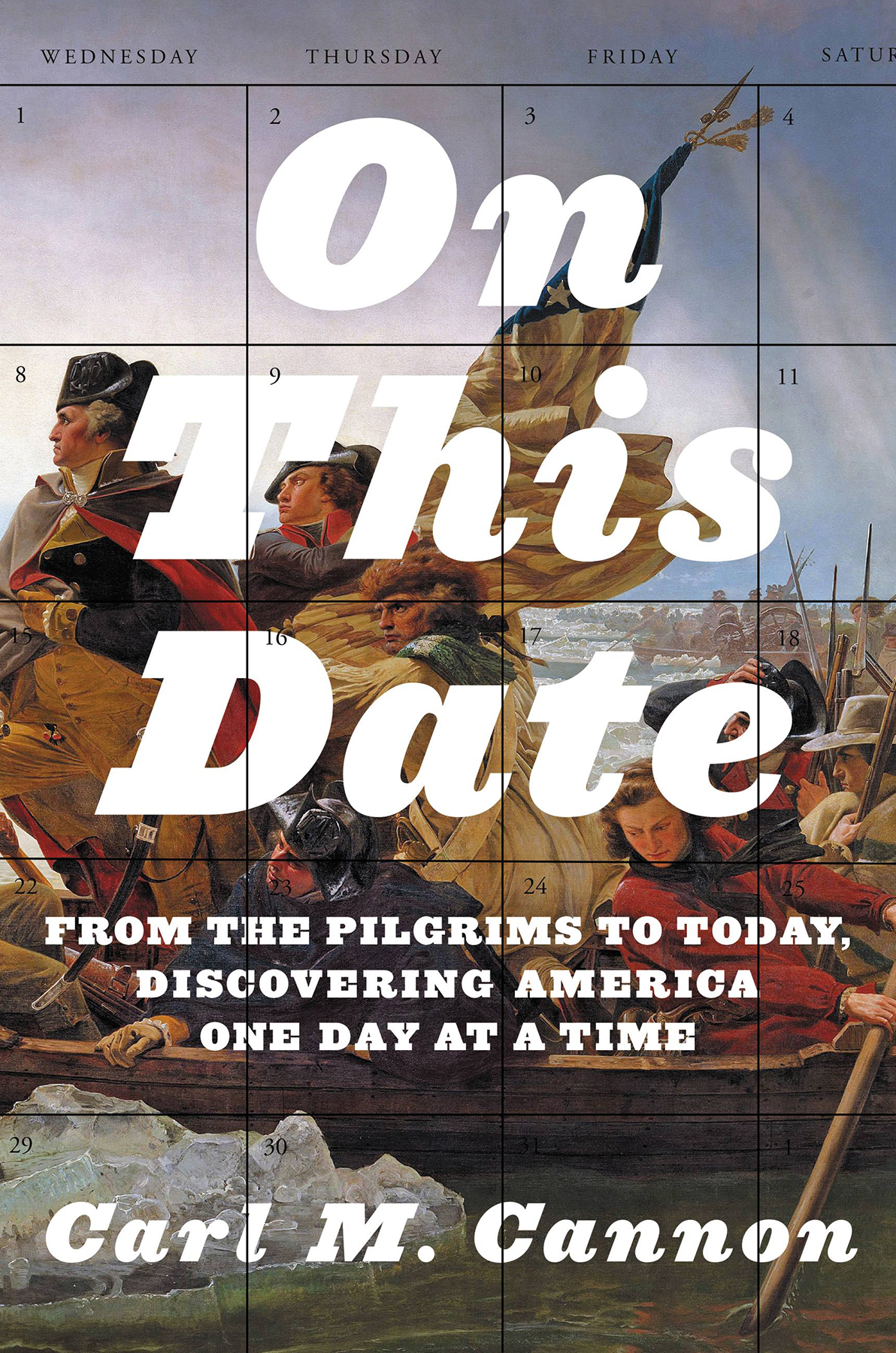Spanish-born American philosopher George Santayana is known for expressing a sentiment that has become a clich: Those who cannot remember the past are condemned to repeat it. This quote is accurateit comes from his book The Life of Reasonbut he was not only making a negative point. The passage begins with an upbeat expression of the same idea. Progress, he wrote, far from consisting in change, depends on retentiveness.
I would add to that sentiment an idea expressed by author David McCullough. Speaking at the 2003 Jefferson Lecture at the National Academy for the Humanities, McCullough defended historical books written for the mass public, and not just other academics.
No harm is done to history, he said, by making it something someone would want to read.
This admonition was somewhat self-serving, in that David McCullough has a gift for writing books that millions of people want to read. But his point is right. The approach used in this book, taking a digestible event from any given day366 given dayswas done with that in mind. The format comes out of a newsletter I send to some nineteen thousand subscribers five mornings a week in my capacity as Washington bureau chief and executive editor of RealClearPolitics.
Our online news site, devoted to politics and government, is assiduously nonpartisan. Im aware that most journalists say similar things, and that for too many their work belies that claim. But at RCP our very business model depends on not taking sides in the great national argument between Republicans and Democratsand Independents. In any event, Im nonpartisan naturally, as the contents of this work will demonstrate.
Yet, it would be facile to claim that no guiding principles about Americas place in the world inform this work. Many loyal readers of my Morning Note are already familiar with my underlying approach to writing about American history. I believe they can be distilled in a couple of sentences. The first is that notwithstanding the degraded condition of our dysfunctional, rude, hair-on-fire politicsand not minimizing the violence roiling the globethrough the years Americans have lived through similarly trying times, often facing even graver challenges.
My second point, which flows naturally from the first, is that we have usually prevailed. When we didnt prevail, we muddled through. Often, though not always, we learned something along the way. In researching this book, I stumbled across supporting evidence for this attitude in a 1921 essay by a Washington newspaperman and magazine writer named Edward G. Lowry. Well-known in his day and utterly forgotten now, Lowry helped popularize the famously taciturn nature of then vice president Calvin Coolidge. Lowry dubbed Coolidge the Foster-Child of Silence, writing in one essay that the vice president was a politician who does not, who will not, and who seemingly cannot talk.
The essay that caught my eye, however, was one in which he writes about how political life in Washington proceeds from one crisis to another. He continued:
But do not despair of the Republic. The only thing one can be sure about in a crisis or situation or condition in Washington is that it is not unprecedented; it has happened before. Certainly the sons and descendants of Jeremiah have rended their garments, beat their breasts, and made such loud lamentation before the Capitol and the White House after each of our war periods. They sat about in bewilderment as they sit now, and will again, saying to one another, Was there ever such an extraordinary situation? Was there ever such another mess as we find ourselves in now? Was there ever such another set of dolts, knaves, and incompetents in command of our destinies? The answer is: There was. This is not the first time that the wind has moaned through the rigging.
My first book, The Pursuit of Happiness in Times of War, was an examination of how American presidents and other national leaders employ the language in the Declaration of Independence to rally their countrymen in times of war or national peril. It was published after September 11, 2001, about the time of the U.S. invasion of Iraq, and landed me on C-SPANs Booknotes program, hosted by C-SPAN founder Brian Lamb. Brian is the rare on-air host who reads a book before interviewing its author. This is not always good for the writer. Brian noted during our interview that as far as he could tell, I didnt have a bad word to say about any U.S. president. There was an answer to this observation, but I didnt give it.
Youll notice that Richard Nixons not in it, I quipped.
This was supposed to be a laugh line, except that Brian Lambwho is disinclined to indulge his guests by playing the straight manbarely cracked a smile. In time, I came to see that there was something else wrong with my jibe: It was a cheap shot. To atone, Nixon is mentioned in this book. Ill do it right now, because on April 13, 1972, he said something pertinent to this project. Speaking in Ottawa at a formal dinner hosted by the Canadian president, President Nixon told a self-deprecating story about playing golf in Canada when he was vice president and how their group went to a pub afterward without changing clothesand without the presence of Secret Service agents.
We went in and sat down, Nixon recalled. The waiter looked us all over, and some way he seemed to think he recognized me, but he wasnt sure.
After we had finishedhe was a very polite waiterand were ready to leave, the waiter came up and said, Sir, if you dont mind, I have a bet with the bartender, and you can help me win it or I might lose it.








